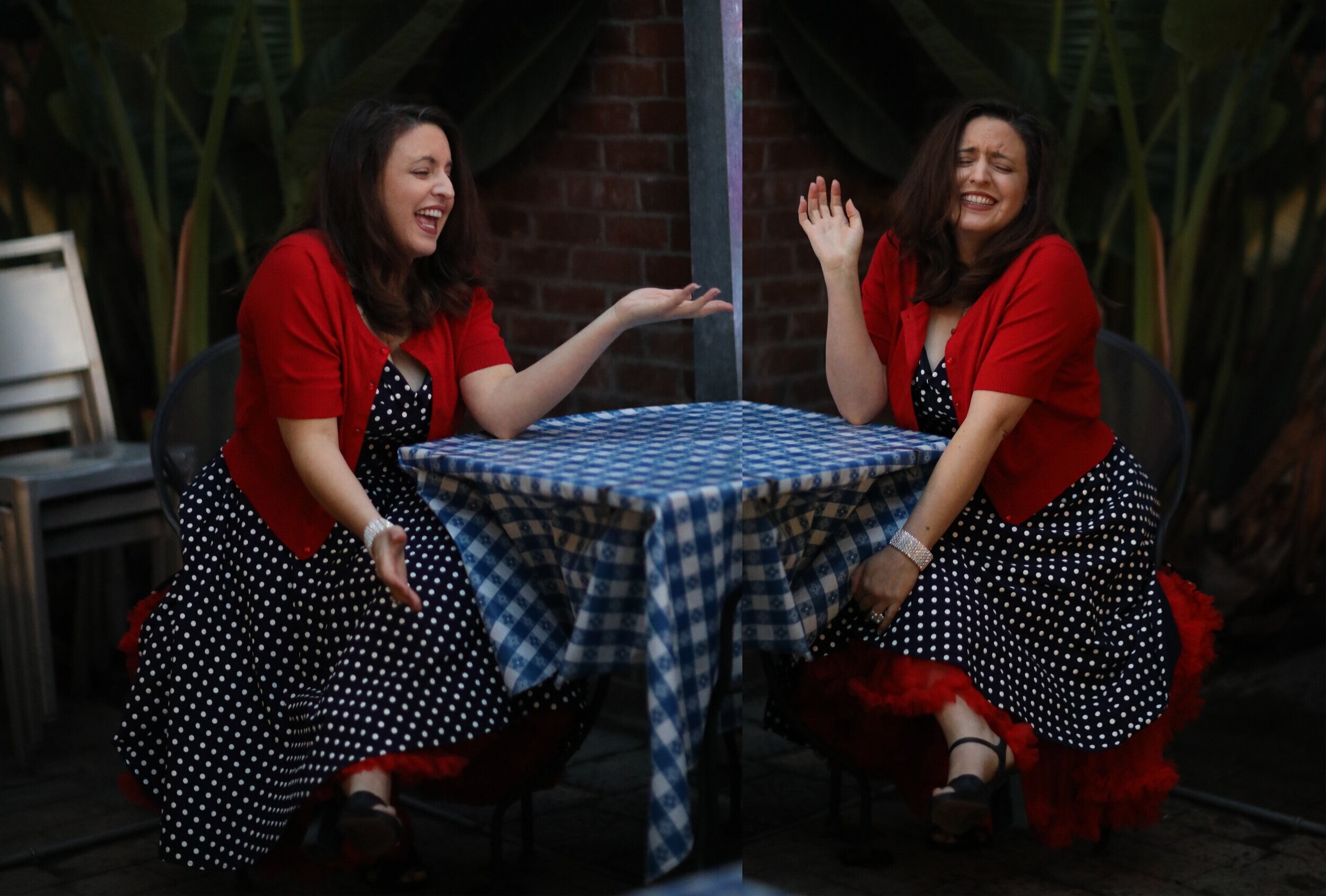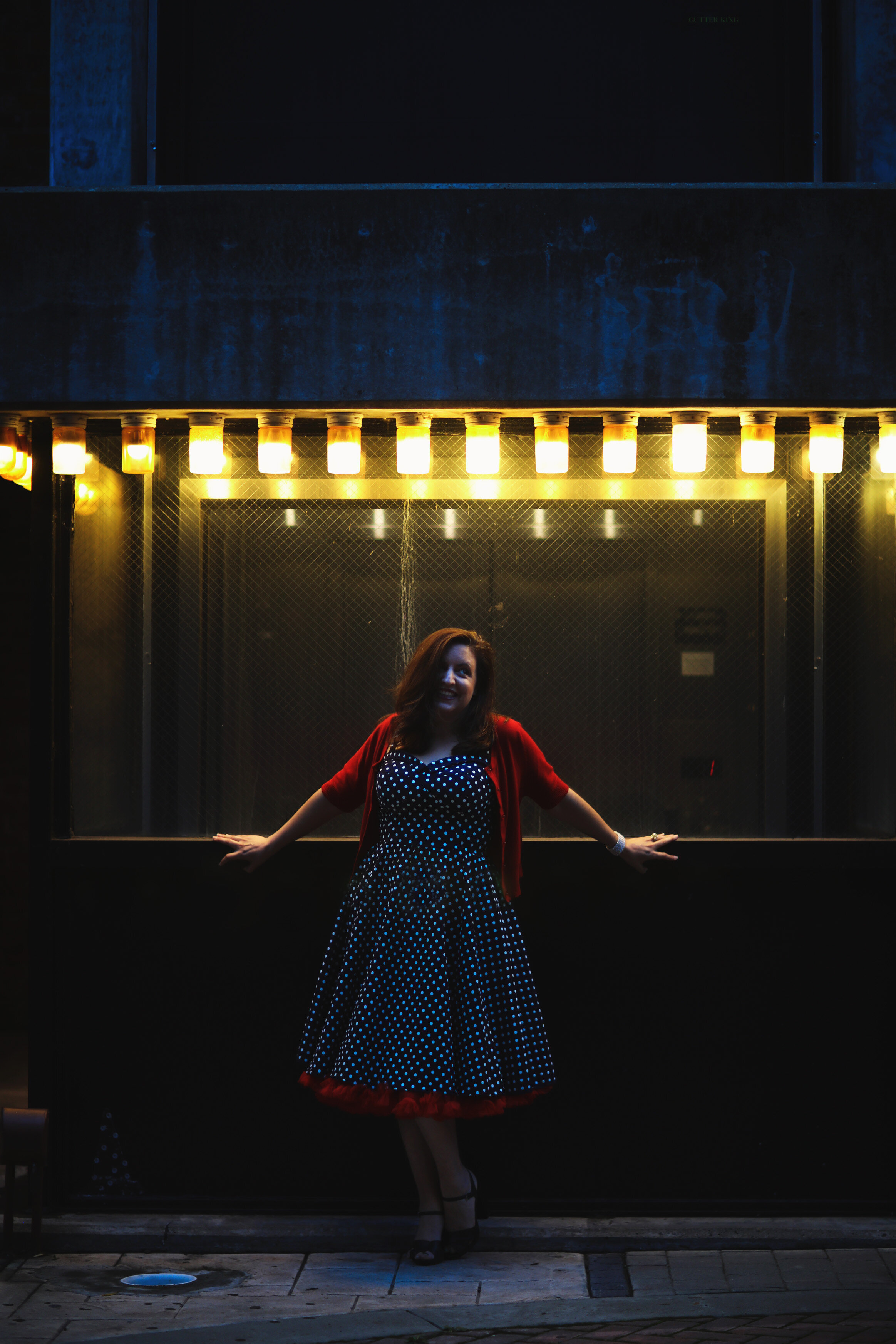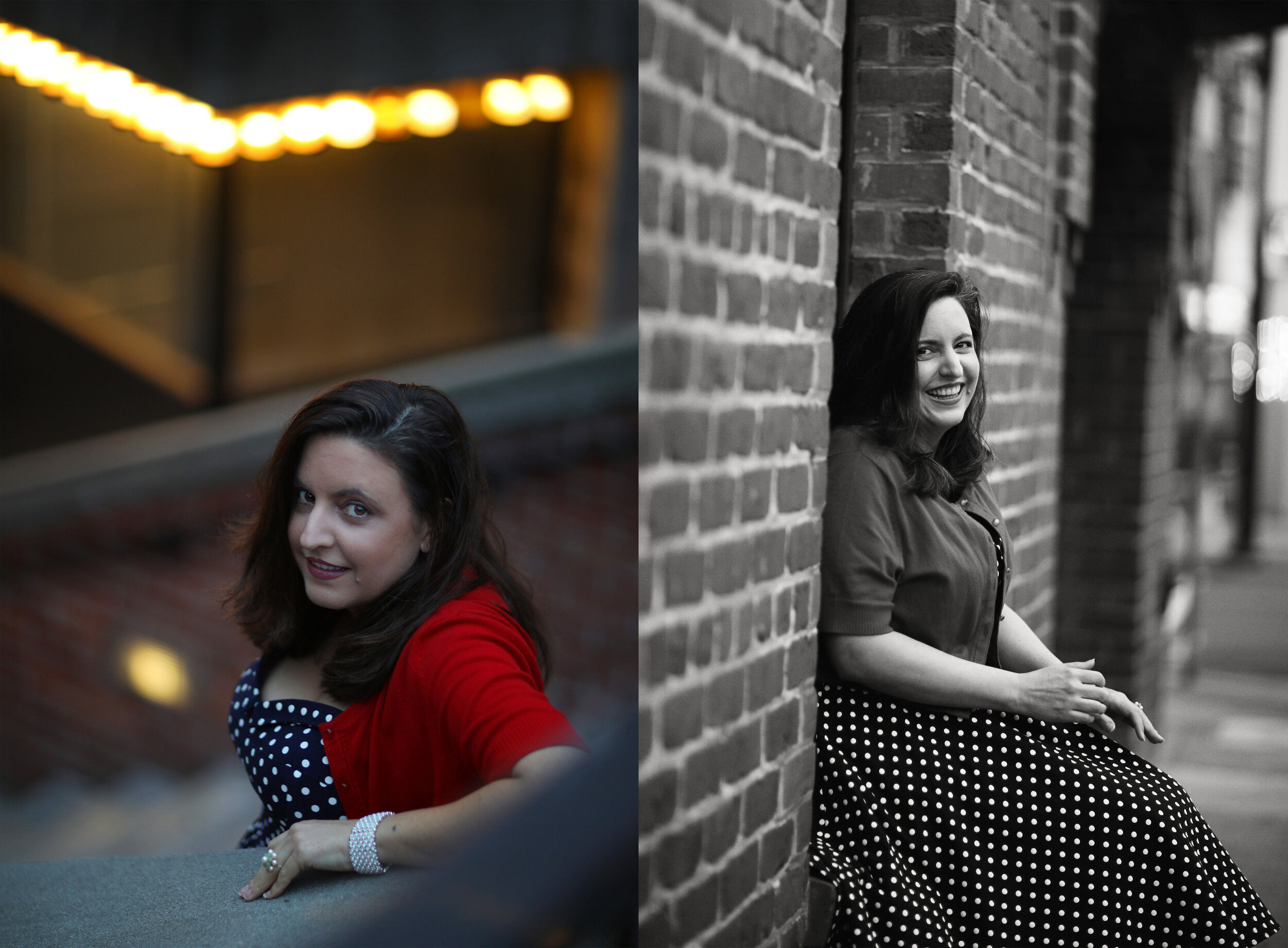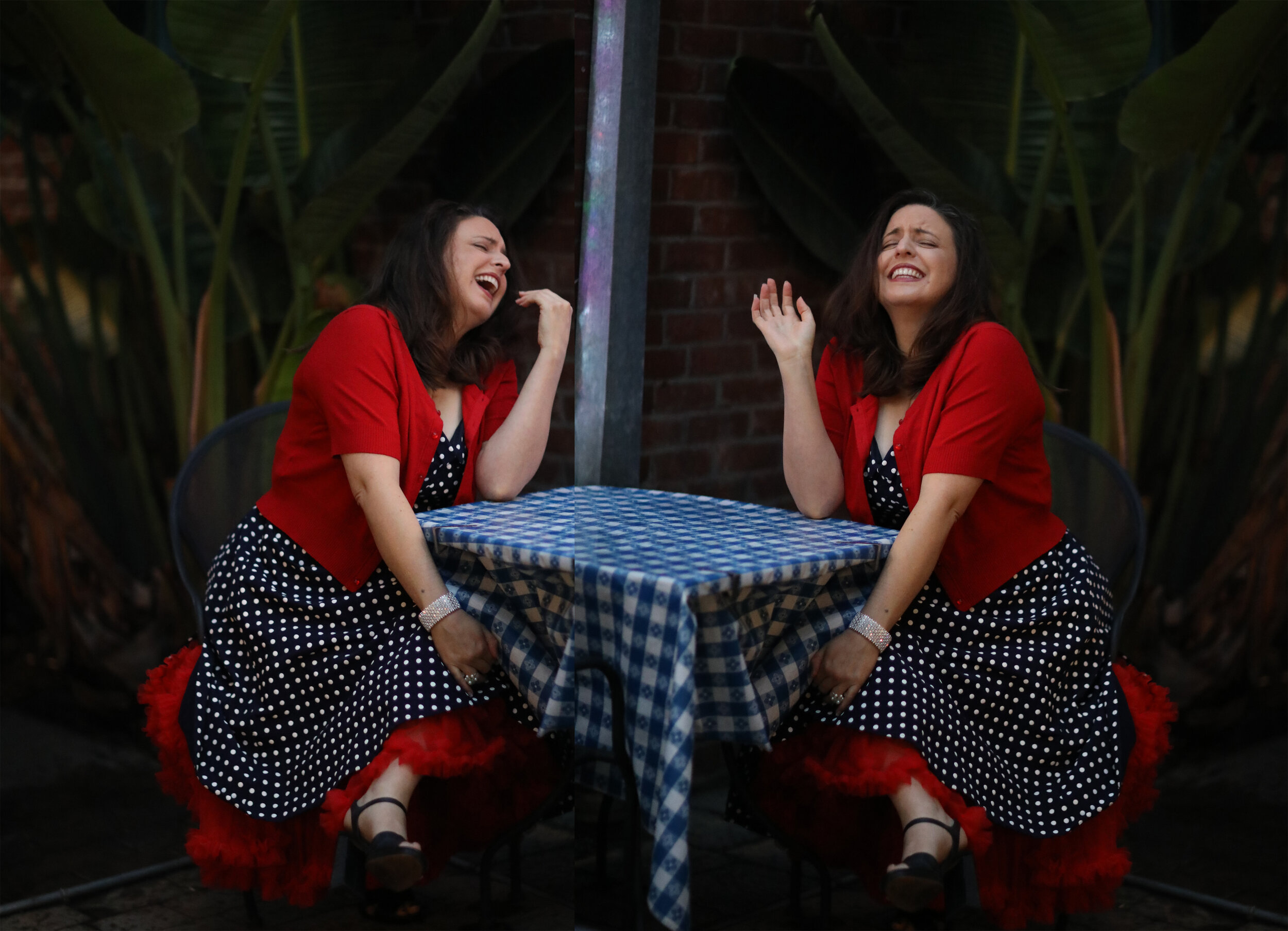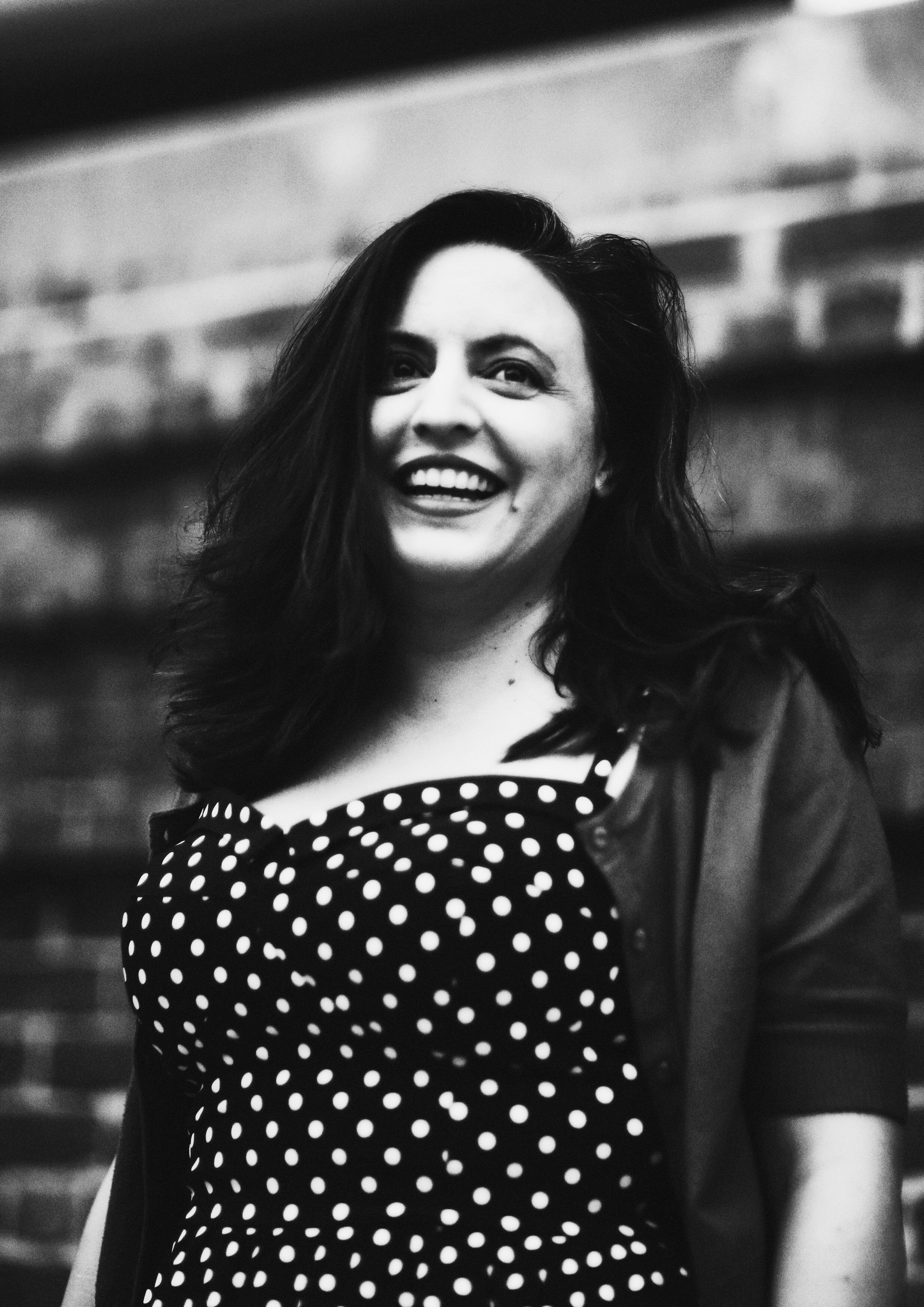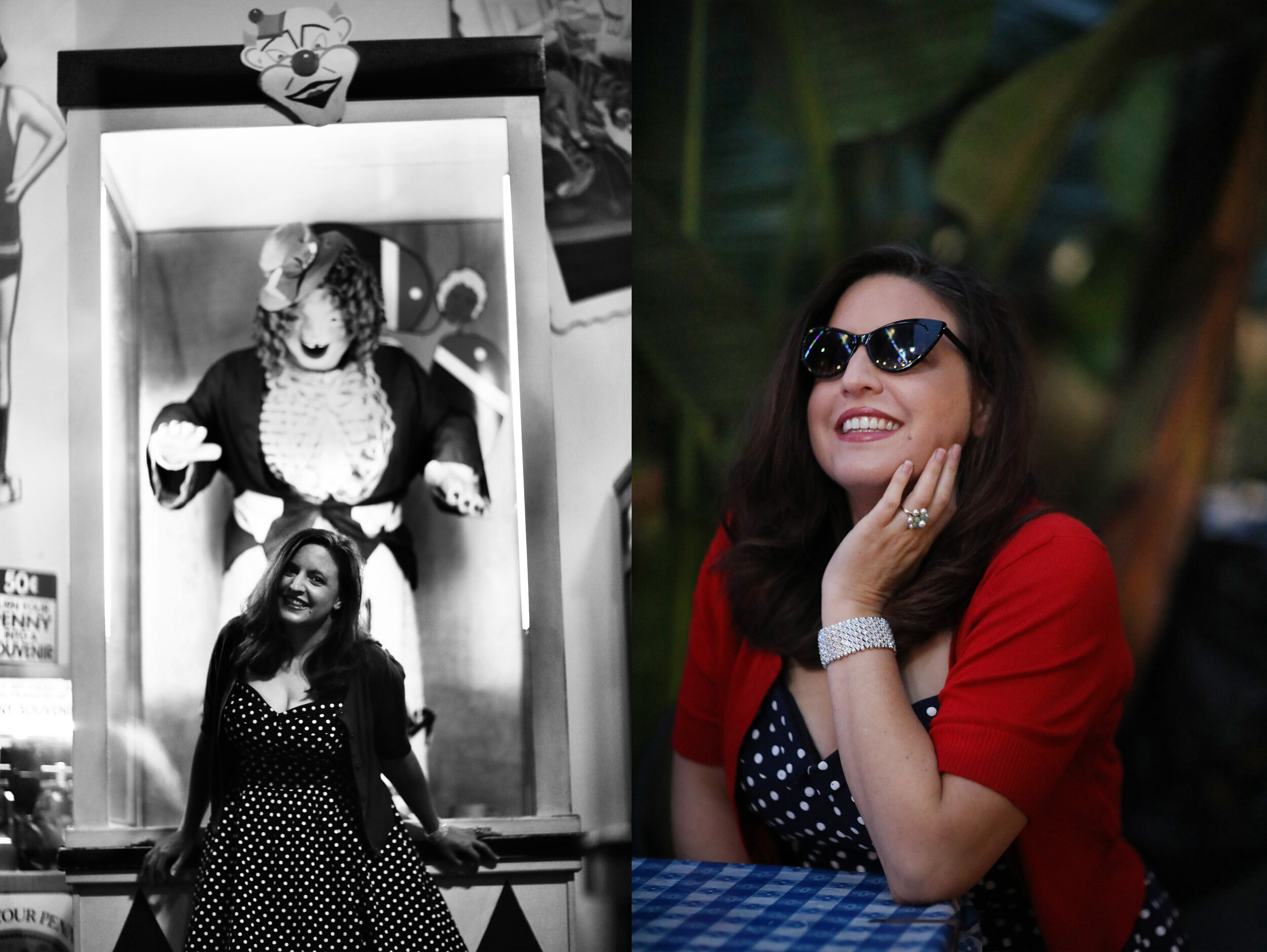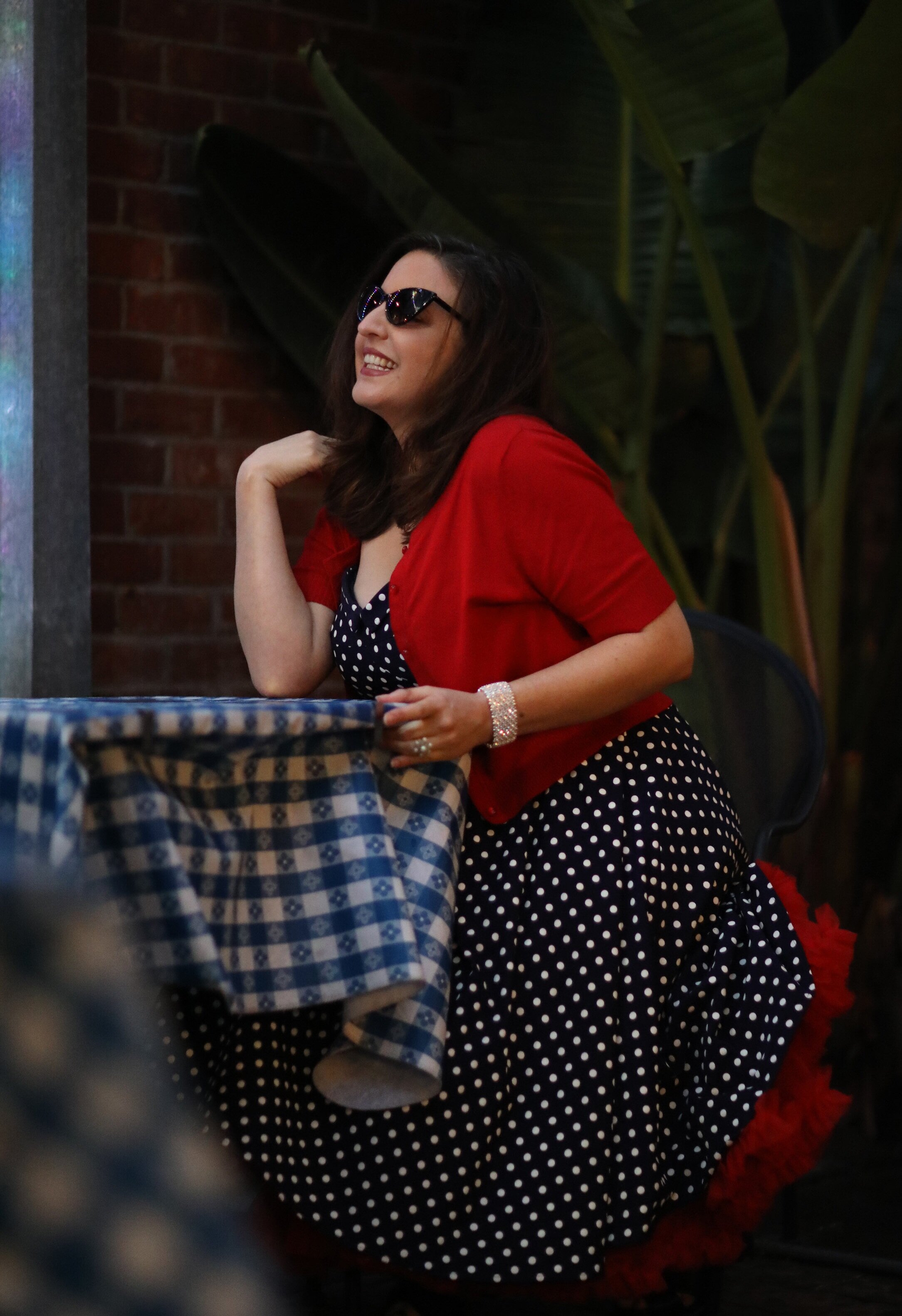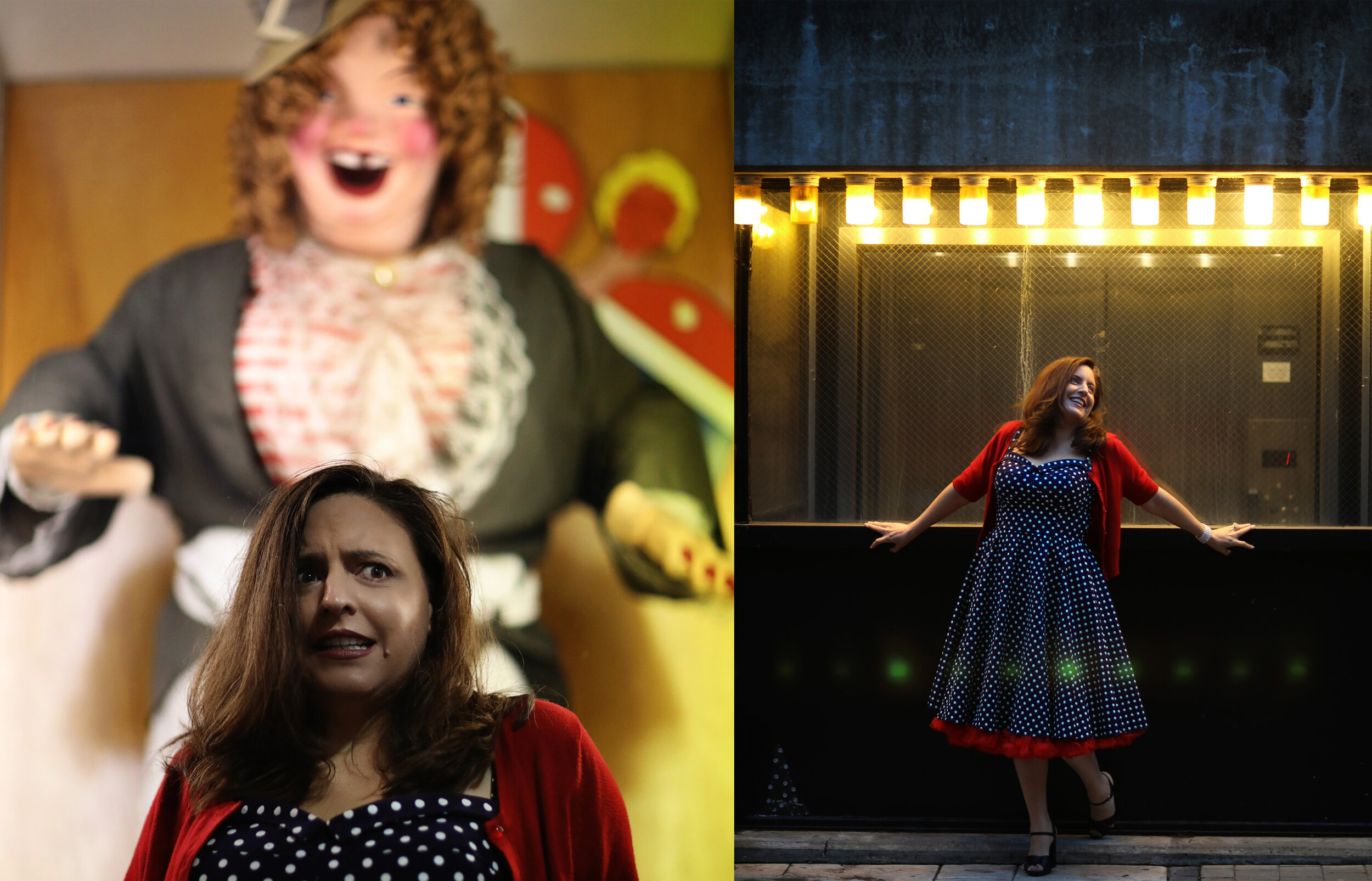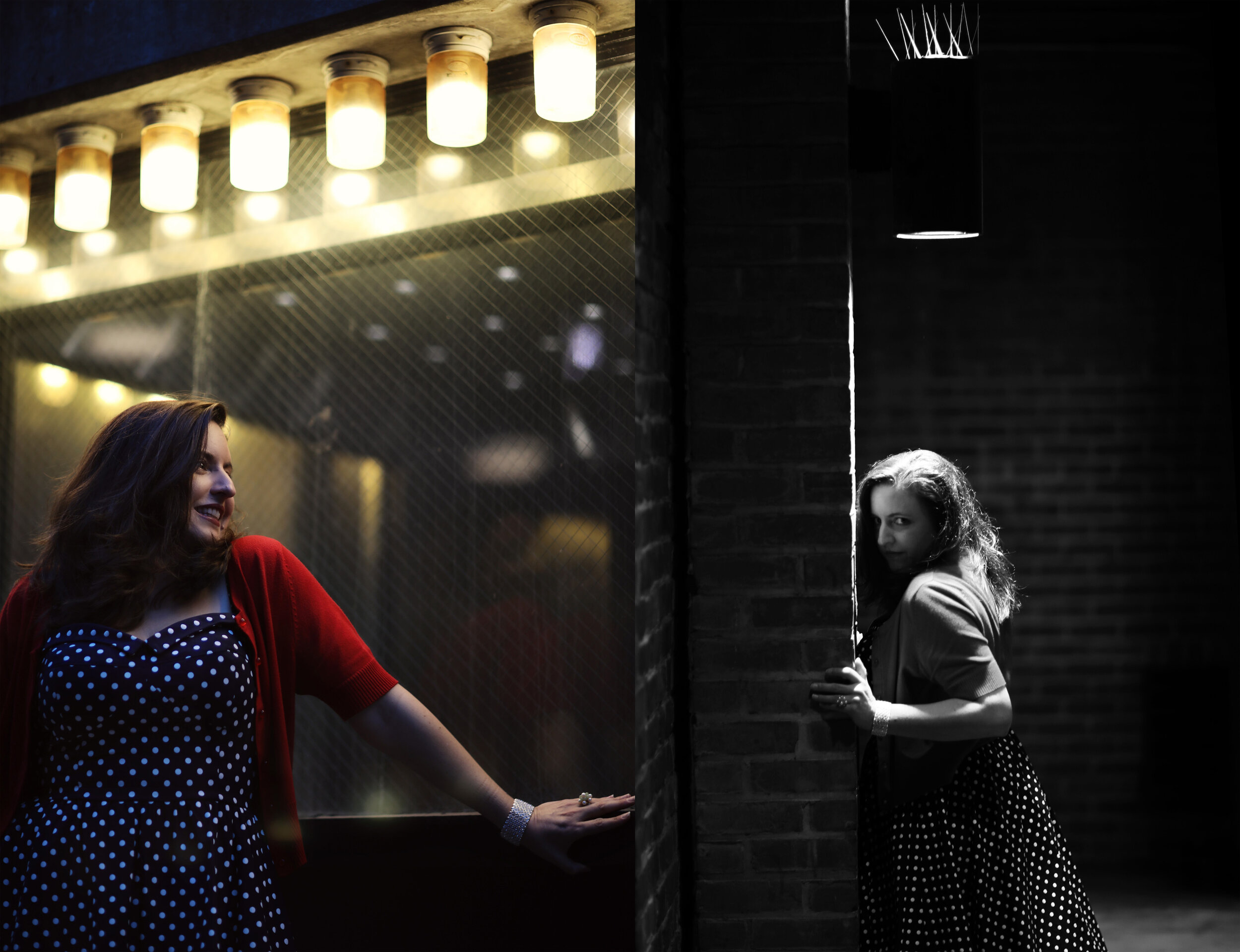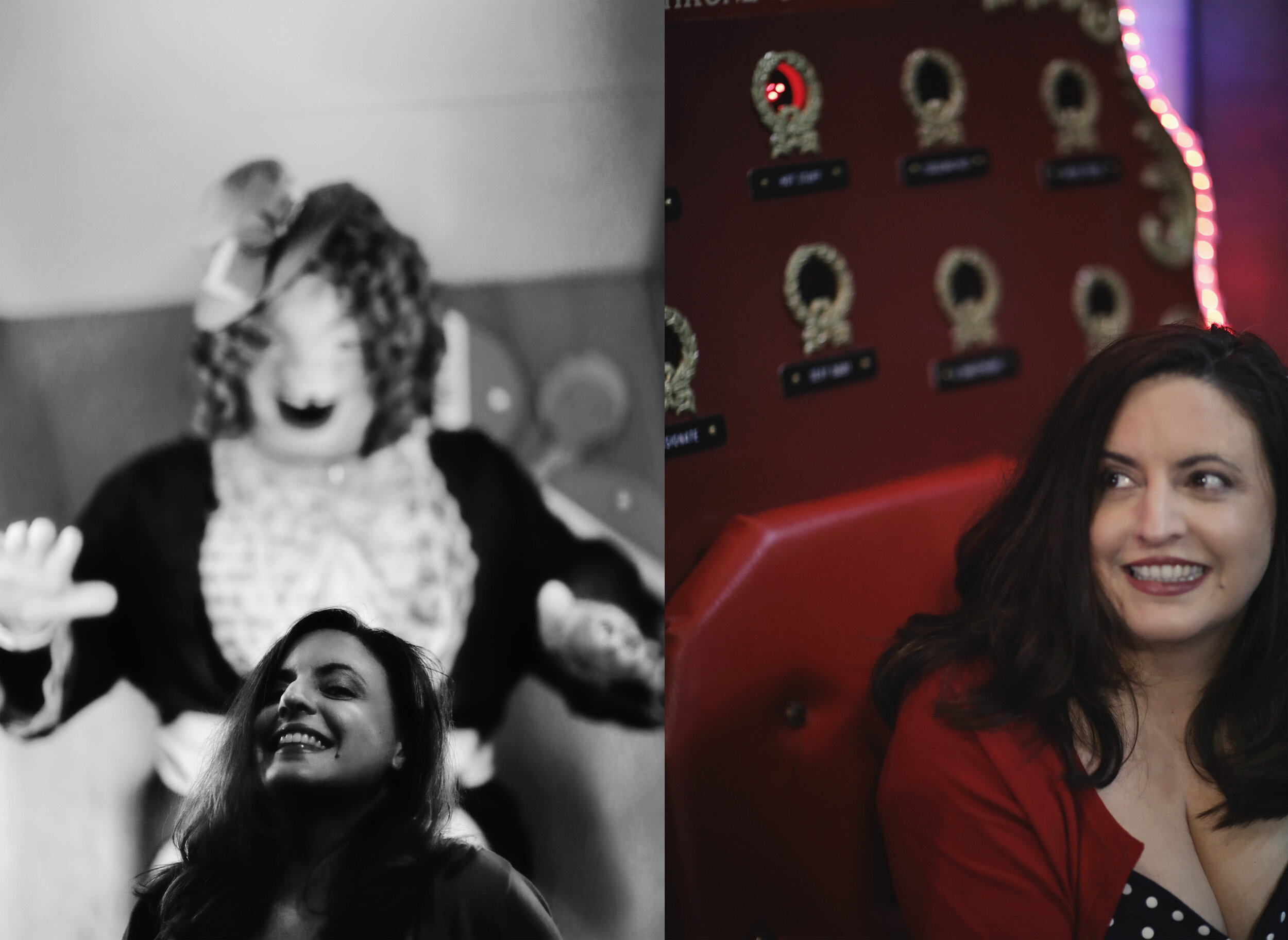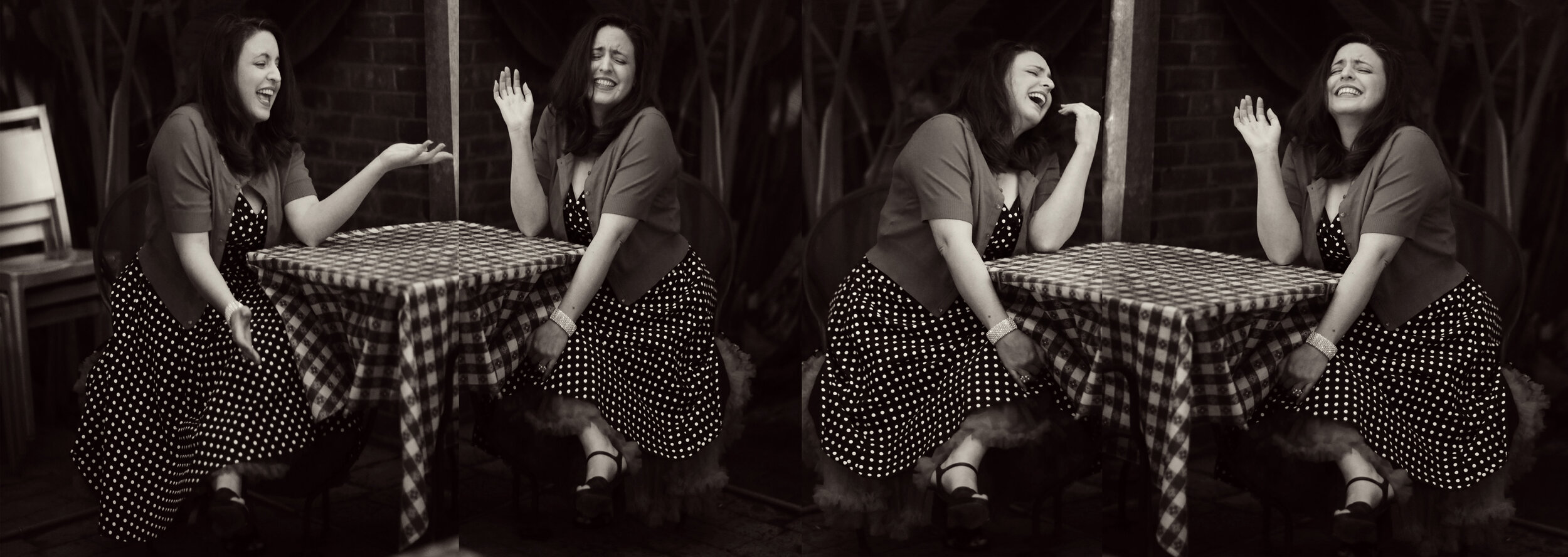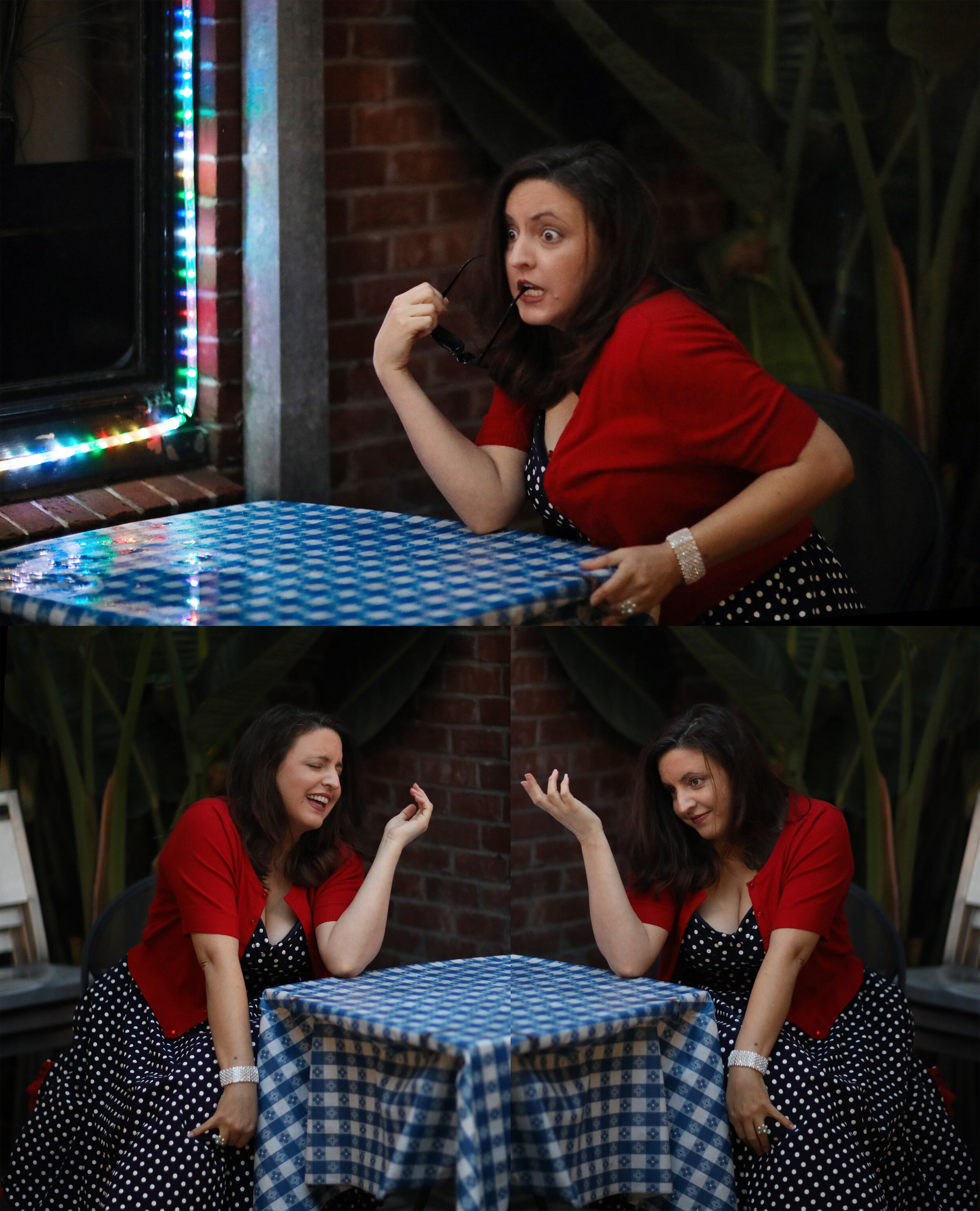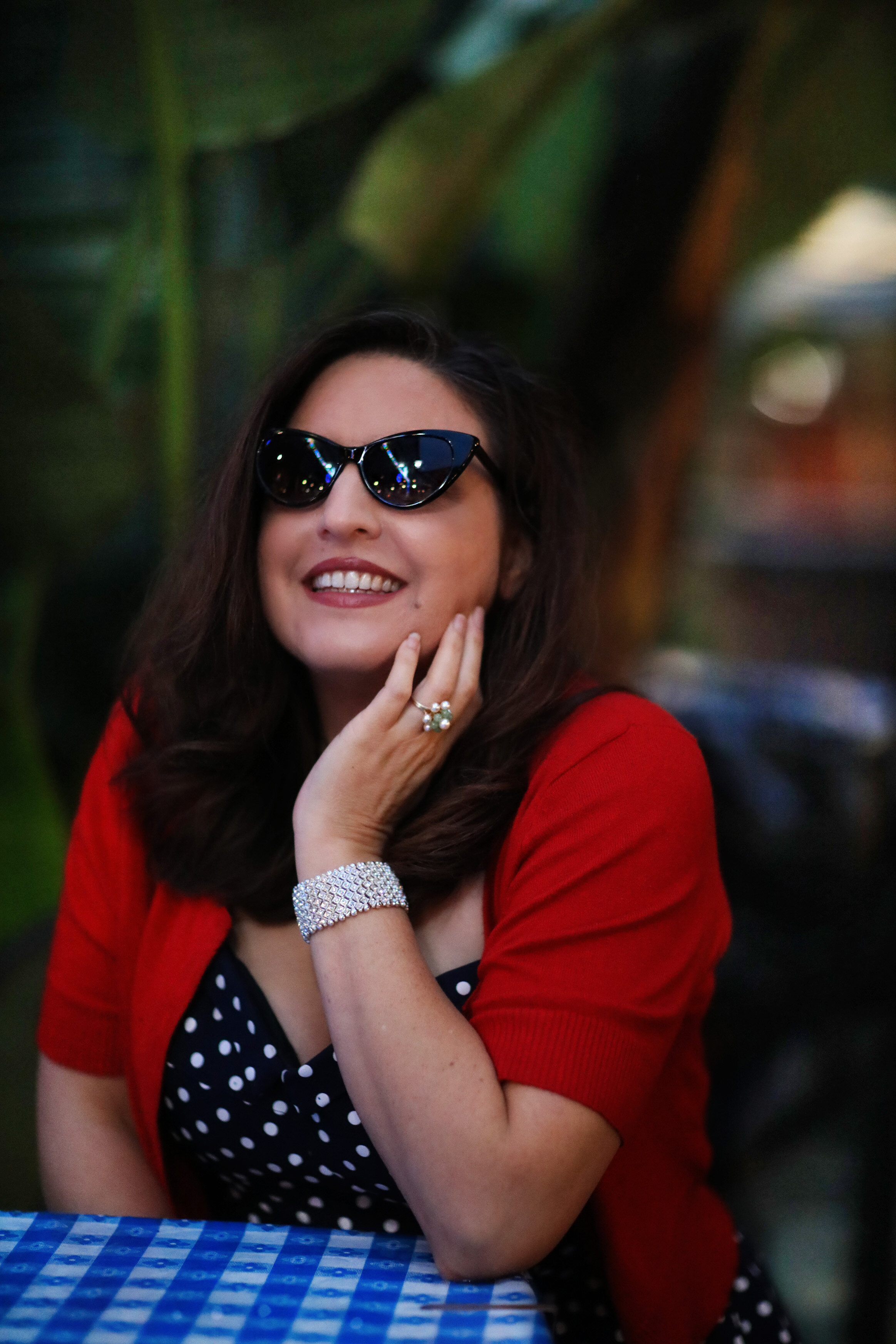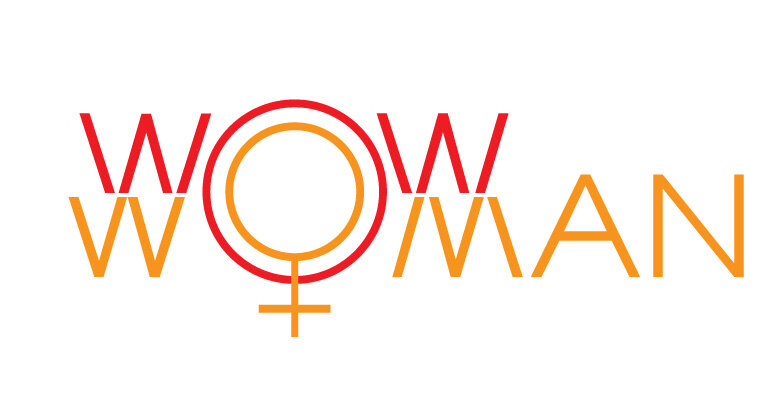Comedian, Author, Educator, Speaker, San Francisco
Ms. Nina G loves to talk. She tells stories, throw puns, spits conjectures, forces you to laugh, holler, cringe, smile, laugh, repeat. She is the queen of moxie and ipse dixit. No wonder, she is a stand up comic! Under it all is Nina’s natural ability to beguile you with wit and sass, a genial disarmament if you will. “I thought someone who stuttered could never be a stand-up comedian,” she says. And so the WOW Woman story begins.
1. Name
Nina G.
2. Where is your hometown?
Alameda, California--USA
3. What is your profession/career/title/self-label/designation? What does your average day look like?
Comedian, Professional Speaker and Educator. Right now I am on break from my day job at a college and I am loving it! This week I got to be full time comedian! In seven days I did 13 shows/open mics. I never got board with comedy and focused on my new material and developing even newer material.
Mics and shows don’t start til 5 pm so I filled my day with a couple interviews to promote my book, worked on booking gigs for the coming months, ate with my parents a couple of times and checked a few things off my to do list. Honestly though, I did stay in bed for too long and enjoyed doing that a little too much. I mean there was a Laverne and Shirley marathon on. How do you motivate yourself to get up and do anything when Penny Marshall and Michael McKean are on your TV screen?
4. What did you study in school?
Psychology, with an emphasis on Disability Studies.
5. What was the journey like to get where you are (in life and career-wise)? Write about some of the achievements that you are most proud of. What was the breakthrough moment for you (in your personal life and/or career?) that set you on the current path in life?
This year, 2020 marks my tenth year of performing stand up comedy. It took me over 20 years to venture onto the stage.
As far back as I could remember, stand-up comedy was the thing I loved the most. While most girls my age were pining away at the guys in New Kids On The Block, I was crushing on stand-up comedians I saw on HBO comedy specials. The first fan letter I ever wrote was to the eccentric and brilliant comedian Emo Philips. He was nice enough to send me an autographed picture that has become one of my prized possessions. I have met Emo a number of times when he has performed in the San Francisco Bay Area where I live. He continues to be gracious, even with his legendary status.
It was about the time that Emo responded to my letter that I first got the idea that I wanted to be a stand-up comedian. I wrote jokes (which were horrible), researched the history and business of stand-up comedy and tracked local open mics. All of this slowly progressed through my teen years. I was determined to get up on the stage and share my thoughts on Gilligan’s Island and menstruation (some of the jokes I jotted down on a sheet of paper). The dream of being a stand-up comic was deemed impossible at 17 years old so I let it die. I thought someone who stuttered could never be a stand-up comedian.
Now, lets travel over 20 years into the future!
In July of 2009 I attended a conference for people who stutter. I went to the conference thinking my attendance was in a professional capacity. I was there to learn more about stuttering from an academic perspective and not a personal one. I quickly realized that what I needed to learn about stuttering transcended the academic world. I saw myself reflected in every way possible in the attendees at the conference. This was especially true of the women at the conference. I saw who I was and who I wanted to be. I realized how much I was holding myself back in so many ways, such as in my communication. When you stutter, you are interrupted all the time by other people completing your sentences. It dawned on me that I was self interrupting. I was holding back from what I wanted to say because I didn't want to put my speech onto somebody else. It was as if my stuttering was a burden to other people. I also saw how this self interruption wasn't only in communication, but it was through my wants and desires. I was holding back in relationships and in the workplace in so many ways. After the conference, I was determined to reclaim some of the space I had relinquished to others.
I started making changes in my life. In late February of 2010, I would start doing stand-up comedy. This year marks my tenth year of doing comedy. I am able to perform the art form that I love most, express my views of the world and make a partial living as a comedian. I celebrated this journey by completing my memoir, Stutterer Interrupted: The Comedian Who Almost Didn’t Happen. In writing the book I realized that stand-up comedy has been the one constant in my life. I have been a comedy fan even longer than I have stuttered or knew I had dyslexia. Some nights I perform and I think, “What am I doing in this bar getting my life threatened by drunk patrons? Are the cops seriously gonna arrest that heckler during my set?” Other nights I am performing with people I watched and studied when they were on TV in the 1980s. Whatever the scenario, I am grateful and honored that I get to be involved in the business and nonsense of comedy.
6. How is your life different from what you pictured at 20?
When I was 20 years old, I thought I would be a 3rd grade teacher, get married and eventually have kids. Well, I taught as a student teacher in a 3rd grade classroom and realized I hated it! Third grade was a difficult time for me and I wanted to undo that pain for other kids who might have dyslexia, stuttered or had other difficulties like I did.
I soon learned that the difficulties I had reading at that age were things that still impacted me. I had a difficult time teaching phonics because I still could not distinguish the sounds (the difference between /ch and /sh). I soon realized that if I did teach a 3rd grade class, my kids would not be able to read but they would feel really good about themselves since I was good at understanding self-esteem issues. I soon decided to pursue my doctorate in Psychology.
While getting my doctorate, it quickly became apparent that disability access and rights played a central role in what I would eventually do for a job. I had experienced discrimination while attempting my doctorate and I saw the need for more advocacy. I would eventually find my way to working in colleges to improve access for students with disabilities.
I am the first one in my family to finish college with a bachelors degree (although my dad would get his bachelors after I received mine and got his masters the same year I got my doctorate). Coming from a working class background, it was difficult to merge the life I had expected with the new life I was venturing into. Eventually I found that my passion for advocacy would outweigh and win in terms of focus in my life. Meanwhile, my dream to be a comedian was still just that, a dream. I was relegated to writing essays about the significance the psycho-social impact of comedians or simply watching them on TV. At 20 years old, it seemed like an impossible and impractical dream to even consider!
From Stutterer Interrupted:
One of the most memorable sets I ever had was, of all places, in the back of an Italian restaurant in Fremont, California.
I was amped for this show! Me performing at an Italian restaurant? If Olive Garden says you’re family, I figured I was home free with this crowd. When I got there and saw the audience with their olive complexions and noses shaped like mine, my hopes were instantly confirmed. These were my people! I could stutter in front of these strangers and they would accept me as one of their own. Making random people giggle at dick jokes is one thing, but in this room we could share a cathartic laugh over the sort of cultural in-jokes and serious subjects that only families can talk about. There were a million stories I could tell to this audience, but it’s usually best to open with established material. I walked on stage and delivered my best jokes on stuttering, channeling my excitement into the performance.
I got crickets. Worse than crickets, because crickets don’t actively hate you. These people gave me bitter humphs and looks of contempt. I moved on to dirtier jokes, which also bombed. The audience seemed to hate me even more for trying to win them back. Back from what? This audience hated me from the start! I could practically hear their thoughts: “Why are you talking about this in public? We don’t want your shame. Women aren’t supposed to talk/sound like that. Bury your feelings and deal with them yourself.”
I got off stage early. Who cares if my fifteen minutes weren’t up? That shit felt like fifteen hundred. The producer of the show ran a comedy competition that I had won earlier in the year, so at least he knew I was capable of making an audience laugh. I thanked him for having me and got the hell out of there.
I found my Jeep in the oversized strip mall parking lot and flopped into the driver’s seat. Driving usually calms me down and helps me process my emotions. I didn’t even make it out of the lot before I started crying. I don’t mean some wimpy little sniffles; this was full-on snot-bubble toddler-who-needs-to-leave-the-store-type crying. By the time I got home, my sobbing fit had spiraled into a three-hour anxiety attack.
I told Ethan, my boyfriend at the time who is now my husband, what happened. He tried to console me with stories of him bombing (very sweet of him), but I was inconsolable. The heavy crying continued. Back then I lived a block away from my parents in Oakland, so we walked over there to see if they could help.
As I told my mom and dad what happened, it became clear this wasn’t about comedy. I’ve had crowds that don’t get me. I’ve had crowds that do get me and hate me anyway. I’ve been heckled head to toe in bars and clubs and websites across America and some parts of Europe. I’ve bombed on every stage and makeshift structure pretending to be a stage you can imagine. I’ve had hipsters give me dirty hipster looks and yuppies give me dirty yuppie looks. I’ve performed for “disability awareness” college events only to have the students make fun of my stutter. But did I cry after any of those shows? Not once!
So why was this different?
This was about family.
In traditional Italian-American culture, women aren’t supposed to be funny. Unless we are reading poems at a funeral or serving cake, we are expected to be fairly quiet. It’s a real shame too, because we clearly have a talent for running our mouths (Joy Behar, Lisa Lampanelli and Janeane Garofalo come to mind).
Oh, and we are definitely NOT supposed to talk about shameful things like disabilities and family secrets (two of my favorite topics!). So where does that leave me? For the people in the back of that restaurant, the intersection of my culture, gender, and disability came together to form something unacceptable. The sum of my parts had canceled me out, like positive and negative numbers adding up to zero. I drove home from the show, feeling like my entire existence was going to unravel. The final gut-punch was the unconscious realization that this is how my own family sees me.
I’m not talking about my parents—they’re amazing. And to all the other family members reading this: I’m not talking about you either. The ones I’m talking about don’t even know about my comedy or my book, and if they did, they would probably never watch my comedy or put the book down halfway through the table of contents.
I’m talking about the backward cranks still dangling on the upper branches of my extended family tree. Many of them are from my grandparents’ generation with one foot in the mainstream and one foot in the Old World. They come from a culture where women are the caregivers, where our purpose in life is making others comfortable. I’m all about hospitality, but there’s no way I’m wearing that hat all the time! Stand-up comedy and disability issues aren’t exactly known for making people comfortable!
I finally slept off the three hour anxiety attack. Nothing really changed. There was no real resolution other than I am now able to better identify these feelings and can see them coming. I can better take care of myself when this situation happens again. I know that I will have experiences, whether on or off stage, that elicit feelings that have their origins in deep seated places in my psyche. It may be related to my experience in my family. It may be related to childhood issues around thinking I was stupid because that was reflected to me by my teachers. It could be any number of issues that I am not always conscious of, but knowing that they are contained in my own mind as something from the past helps!
8. Advice for other women?
I have two pieces of advice.
Keep eyebrow tweezers in your car, especially if you live in high traffic areas. I live in the San Francisco Bay Area and spend a lot of time in traffic jams. This is THE BEST time to catch up on ladyscaping. A little tweeze to the eyebrows. A little pluck to that mole on your cheek. It is the best lighting to see the stray hairs that you miss in the bathroom mirror. In terms of inspirational quotes, I can offer you this one, “Pluck your chin hair like no one is watching!”
Ok, that last one is kind of a joke (but not really). I actually do tweeze in my car often which is why my chin is as smooth as a baby’s bottom. The other piece of advice I can offer is to not take shit from people. Women are socialized to just roll with the punches even when those punches are inappropriate or harmful. So many times after something happens I am like “wait, that interaction was totally weird and why didn’t I react to it in the moment?”
Something that has helped me with dealing with hecklers is to reflect on the experience after and write a response that I should have said. What I am doing is building an arsenal of comebacks and ways of dealing with the situation that will inevitably help me when something comes up again...because it will. These past experiences where we don’t respond in the ways that we wanted are a training ground for how we really do want to respond. We can take these experiences and grow from them so that we can behave differently next time.
But seriously, the lighting in the car is the best place to identify the chin hairs that need to be plucked.
9. Knowing what we know now in a current political climate, can women be "all that we can be" in today's world? What is the way forward, as you see it, for "feminist values"?
I think women should know that they can be a feminist or activist in whatever way they see fit but should also respect the choice of others in how they express their womanhood. We are all in a different place and have different opinions of what it means to be a woman. Part of our freedom is to choose who we are, how we express ourselves and what paths we will take in the world. Whether that is advocating for your child locally, attempting to change the world through art or advocating in the political realm, all of it is important. Just us existing in some environments is political!
10. Where in the world do you feel “tallest” (i.e. where is your happy place)?
Although I love the art form of comedy, I am always on edge when I am on stage delivering jokes. It is not comfortable and takes a lot of mental energy. I don’t know if the audience likes me or not and it does not feel natural. I still love it though. In contrast, when I am doing comedy to college audiences, once I settle in, I feel at my very best, especially when it is a group of students with disabilities in the audience. I know that they are relating to me in a different way than most audiences. I know I am speaking part of their own experiences.
Once I get over the initial shock of being on stage and I see student’s agreeing with my perspective and understanding my jokes at a deeper level, I just love it! Performing to colleges is one of my favorite things I get to do in life! Many comics feel that college students are too politically correct, but I speak from my own experience and they understand and seem to appreciate that.
11. What extra-curricular activities/hobbies are you most proud of? Why?
As of the week I wrote this I bought a flower stick. Actually I bought one for my eight year old niece. After trying hers I went and bought one for me. A flower stick is a baton that you twirl between two sticks. I have to say that I took to it faster than anything I have ever done before! I mean seriously! I am a natural. I did, of course, take baton twirling lessons when I was nine at the San Leandro Parks Department for about six months, so the twirl is not new. But I must say, I am a flower stick prodigy.
As of writing this, I have had the flower stick for a little over 24 hours. I can’t say whether or not this hobby will stick. I am already sore (how my legs are sore, I have no idea since it’s something you do with your arms). I predict I will hurt myself and simply get frustrated that I am not getting better and might quit the flower stick game before this interview even gets on Wow Women!
12. What do you want to be when you grow up? Future goals/challenges?
The earlier career goal I can remember is when I was five years old. For school I had to draw what I wanted to be when I grew up. I drew a clown and now I am a comedian---so there you go! Being a clown didn’t stick. In later years the list grew to being a host of a children’s TV show (Romper Room), third grade teacher, stock broker (that wore off very quickly) and comedian.
Today, in addition to being a comedian/ professional speaker/ author, I am also a counselor at a community college. I love all of these things and feel like I am able to express different aspects of myself in each of them. I really don’t know what my next goal in comedy is other than getting more gigs. I guess I would like to perform in every state in the US. Right now I am down to 21 states and two countries (Ireland and Iceland). Let’s see what the new decade brings!
13. What fears are you still hoping to overcome?
The dentist! Ugh! I don’t even want to tell you how long it has been! Luckily I don’t have any cavities. Of course, how would I know?!
14. Anything you'd do differently, if you had another go at life?
I think finding the Stuttering community sooner would have been nice. I did find the National Stuttering Project (which later was rebranded as the National Stuttering Association) when I was seventeen years old, but it really didn’t take hold of me in the way that I would have wished it would.
I volunteered for the NSP, licked envelopes, but I didn’t throw myself into participation in the way I did when I was in my later 30s. I think if I took my time to really see how my stigma around stuttering impacted my inner self, romantic relationships and just about everything else, I think I would have become the person I always wanted much sooner. But hey! We find our paths when we find them. Sometimes we aren’t always ready for the opportunities when we first encounter them.
15. What inspires you?
Bad comedy! Anytime I question if my material or delivery is good enough, I just look toward a bad comic. Realizing the bar is low is quite inspiring ;-).
16. What are you hopeful about?
I think I am most hopefully that people can change their attitudes about stuttering and other disabilities. I get on people a lot for the microagressions I receive and incorporate it into my comedy and writing. Nonetheless I am hopeful that people can challenge their perceptions and constructs around disability and consequently change their behaviors.
I have seen so many people make these changes and I think with more exposure to disability in the mainstream, our society can move toward a more accessible and disability-friendly world.
17. What are some ingredients to a good life?
Growing up Italian American, family was always something that my parents imparted on me that was important. As an adult I also see how my friends have become family. They aren’t blood but they are closer than most of my family members. This extends to the Stamily as well. The Stamily is the word that many of us use in the Stuttering community to denote the family we have created.
18. What are (at least) three qualities you most love about yourself and why?
I think the three qualities I love most about myself are loyalty, willingness to be uncomfortable and love for absurdity.
19. What advice would you give your 14-year-old self?
To quote Robert DeNiro’s character in Goodfellas, “don’t take no shit from nobody.” The advice was offered after Joe Pesci’s character mocks Spider who stutters and Spider jabs back. If you know the movie, you know Spider’s demise, but nonetheless this advice still holds up! I would want my 14 year old self to know that it is ok to NOT accept when people or society say who you are and what you can expect for yourself.
It is ok to speak up or even make fun of someone who puts you down. People will put you down in so many ways. I would love to give my younger self a list of comebacks or actions to address things people would say or do. These insults would range from questioning my intelligence because of my learning disabilities and stutter to asking me if I “forgot my own name” (upon stuttering on it).
20. What are you reading now? (what books do you gift most and what are your favourite reads?)
The last book I gifted (beside my own, Stutterer Interrupted: The Comedian Who Almost Didn’t Happen, available at your local US bookstore or internationally on Amazon) was to my friend Gina. I found one of my favorite books, The Encyclopedia of Bad Taste by Jane and Michael Stern. Gina and I both share a taste for bad taste. We love tacky shag rugs, pink heart shaped beds and oil lamps with brass naked ladies and plastic plants. I look forward to our next road trip where we will be on a quest for something horribly tacky!
21. Who is a WOW Woman in your world who inspires you and why? Can you nominate three (or more) women you know who perfectly fit WOW WOMAN description? What would you tell them, if you had an opportunity, why you admire them?
Alice Wong, she kicks ass! She is the founder of the Disability Visibility Project/Podcast. She has brought a lot of attention to the Disability community and our issues. She is such a great communicator and is able to bring so many people into the conversation on disability. I knew she was reaching people when my able-bodied husband asked me “do you follow Alice Wong on Twitter?” I was like, I follow Alice Wong in life (for like 20 years!). Alice is so influential even visited the White House remotely via a video robot. It was great! You have to see her picture with Obama.
Pamela Mertz has been recording “Our Stories: Women who Stutter” for over a decade. She has literally given voice to the experiences of the female stuttering experience. People who stutter are 1% of the population. Of that 1%, women are ¼ of that population. That means that the chances of encountering one of us is 1 in 400. I call us “stuttering unicorns” because we are so rare and when we meet, it is very special. Pam has made it easier for us unicorns to meet, find role models and tell our stories.
Gina Davis, my tacky friend who I talked about before, is another total WOW Woman! She is a psychologist, filmmaker and writer. I consider her my stuttering niece--she is like family and was in my wedding. She is working on her first full length film that she funded completely herself titled “I Can’t Sleep.” Her writing and film making revolves around the challenge of creating one’s own identity.
22. Where can others find you/your work (links to websites, blogs, etc.)?
Facebook: @NinaGcomedian
Instagram: @NinaGcomedian
Twitter: @NinaGcomedian
Youtube: NinaGcomic

